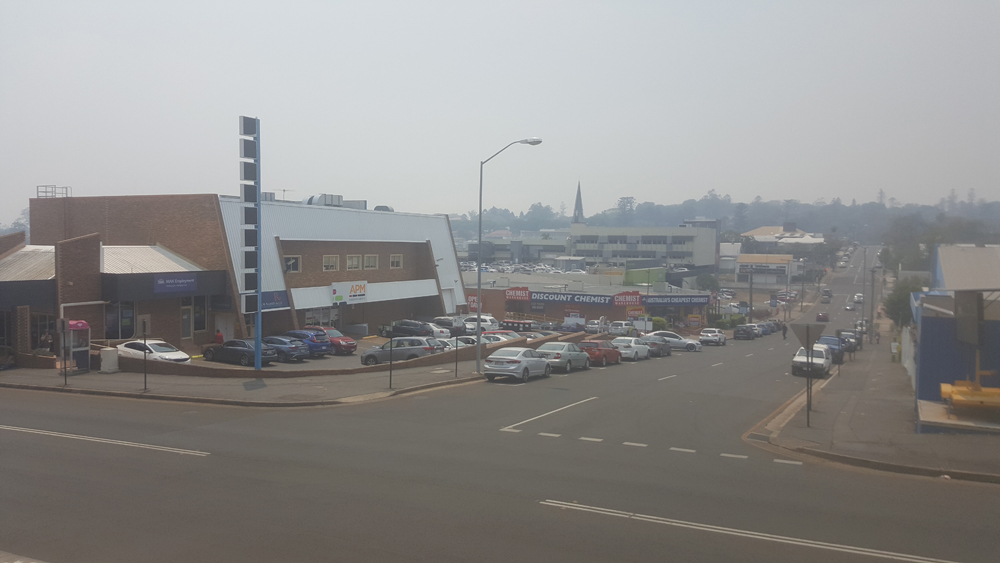There is plenty of smoke hanging around as bushfires continue to burn across the state.
Knowing how to keep yourself safe and healthy in smoky conditions is critical during a bushfire.
Smoke from bushfires can affect your health and may, in some instances, be fatal.
Bushfire smoke contains toxic gases such as carbon monoxide and nitrogen oxides, and particles, all of which can be hazardous to your health.
Here is some advice from Queensland Health for coping with smoky conditions.
Who is at risk?
How smoke affects you depends on your age, pre-existing medical conditions such as asthma or heart disease, the level of smoke in the air and the length of time you are exposed to the smoke.
Signs of smoke irritation include itchy eyes, sore throat, runny nose and coughing.
Healthy adults usually find that after a short exposure to smoke these symptoms can clear up once the smoke goes away or they move away to a smoke-free area.
However, children, the elderly, people who smoke and people with heart or lung conditions (including asthma) are more sensitive to the effects of breathing in bushfire smoke.
Symptoms may worsen and include wheezing, chest tightness and difficulty breathing.
How to protect yourself in smoky conditions
To protect your health from smoke during a bushfire
- Minimise your physical activity outdoors. People with pre-existing lung or heart conditions, in particular, should rest as much as possible and keep away from the smoke.
- When indoors, keep the windows and doors closed. Seal gaps (such as under doors with wet towels or tape) in your home which may be letting smoke into the house from the outside. If you have an air conditioner, turn it on and switch it to ‘recycle’ or ‘recirculate’.
- If your home gets too hot for comfort or is letting in a lot of smoky air, try to visit an air-conditioned community library or shopping centre (if it is safe to do so).
- When indoors, avoid other sources of air pollution including smoke from cigarettes and wood stoves.
- If there is a break in smoky conditions, take the opportunity to ventilate your home to improve indoor air quality.
- Anyone with a lung or heart condition should keep at least seven days’ worth of medication on hand. Those with asthma should follow their personal asthma treatment plan.
- Anyone experiencing breathing problems or chest pain should seek medical advice immediately.
- Listen to your local radio station, watch your television, or check local council updates on the internet or Facebook for updates on fire and smoke conditions in the area.
- Individuals who are particularly sensitive to smoky conditions should consider temporarily moving away from the smoke-affected area and staying with a friend or relative.
Use of dust masks
Special face masks (called P2 masks) filter bushfire smoke, providing greater protection against inhaling fine particles. They are available at most hardware stores.
However, before deciding to wear a mask please consider:
- They can be hot and uncomfortable to wear;
- They can make it harder to breathe normally;
- Anyone with a pre-existing heart or lung condition should seek medical advice before use;
- If the seal around the face and mouth is poor the mask is much less effective, and
- The masks do not filter out toxic gases such as carbon monoxide and nitrogen oxides.
Further information
- Department of Health www.health.qld.gov.au/disaster
- Disaster Management Queensland www.disaster.qld.gov.au/Pages/default.aspx
- Queensland Fire and Emergency Services https://www.qfes.qld.gov.au
- Red Cross http://www.redcross.org.au/emergency-services.aspx
- Contact your doctor, hospital or health clinic.
- Call 13 HEALTH (13 43 25 84) at any time.
- Contact 13 QGOV (13 74 68) for your nearest public health unit.

